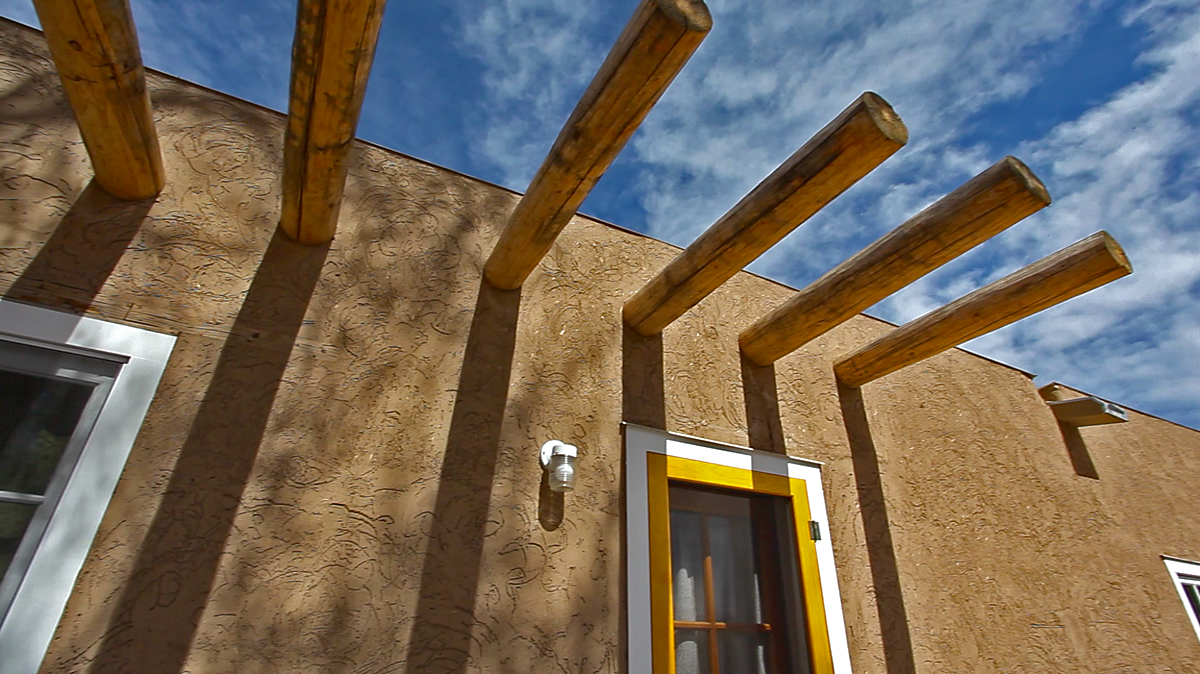 A home in Ohkay Owingeh in New Mexico. Photo: Chuck Olsen
A home in Ohkay Owingeh in New Mexico. Photo: Chuck Olsen
Ohkay Owingeh continues to cancel events as the tribe attempts to slow the spread of the coronavirus in northern New Mexico.
The tribe went eight months in 2020 without any COVID-19 cases. That changed last October, when the first three positive cases were confirmed on the reservation, located about a half hour north of Santa Fe, the state capital.
As of December 18, the tribe had 80 COVID-19 cases. Additionally, 1 person passed away in November.
“As the new Tribal Administration transitions into office; Be advised that Public Safety continues to be our upmost priority to keep the Community safe during the COVID-19 Pandemic,” Governor J. Patrick Aguino wrote in a January 4, 2021, update.
Along with other new tribal leaders, Aguino assumed office on January 1. A community celebration typically takes place on January 6 but the governor said all gatherings, meals and other events have been canceled.
“Ohkay Owingeh continues to be on a ‘No Gathering’ mandate; and we ask that all Community Members please comply with the mandate as set forth by Tribal Administration,” Aguino wrote.
Monday's #COVID19 update:
– 936 new cases, totaling 147,315 cases statewide
– 23 additional deaths, totaling 2,574 deaths statewide
– 703 current COVID-19 hospitalizations
Our actions make a difference. Keep up the fight against COVID-19 – stay home, mask up, slow the spread. pic.twitter.com/nJFflBBzeS
— Governor Michelle Lujan Grisham (@GovMLG) January 5, 2021
The tribe began administering COVID-19 vaccine doses last month to health care professionals. Vaccinations are containing this month among essential workers, elders and others in high-risk categories.
Ohkay Owingeh is located in Rio Arriba County. Despite being home to several tribes and a large city of more than 10,000 people, the county has seen a relatively low COVID-19 positive rate.
As of December 28, 2020, American Indians and Alaska Natives accounted for 16.7 percent of coronavirus cases in New Mexico, according to the state Department of Health. Native people represent about 9.5 percent of the overall population in the state.
Tuba City Regional Health Care Corporation (Navajo Nation)
HHS Small Ambulatory Program Awards $55 Million to 15 Tribes and Tribal Organizations (Indian Health Service)
Indian Health Service Announces New Deputy Director for Quality Health Care and Enterprise Risk Management (Indian Health Service)
Federal Emergency Management Agency (FEMA)
White House Office of Management and Budget (Joe Biden Administration)
Tuba City Regional Health Care Corporation (Arizona, Navajo Nation)
Oklahoma City Indian Clinic (OKCIC)
Indian Health Service (Department of Health and Human Services)
Navajo Nation Town Hall (Arizona, New Mexico, Utah)
Navajo Nation (Arizona, New Mexico, Utah)
Tribal organizations statement on advance appropriations for Indian Health Service
Indian Health Service Statement on Advance Appropriations (Department of Health and Human Services)
Indian Health Service (Department of Health and Human Services)
Indian Health Service (Department of Health and Human Services)
